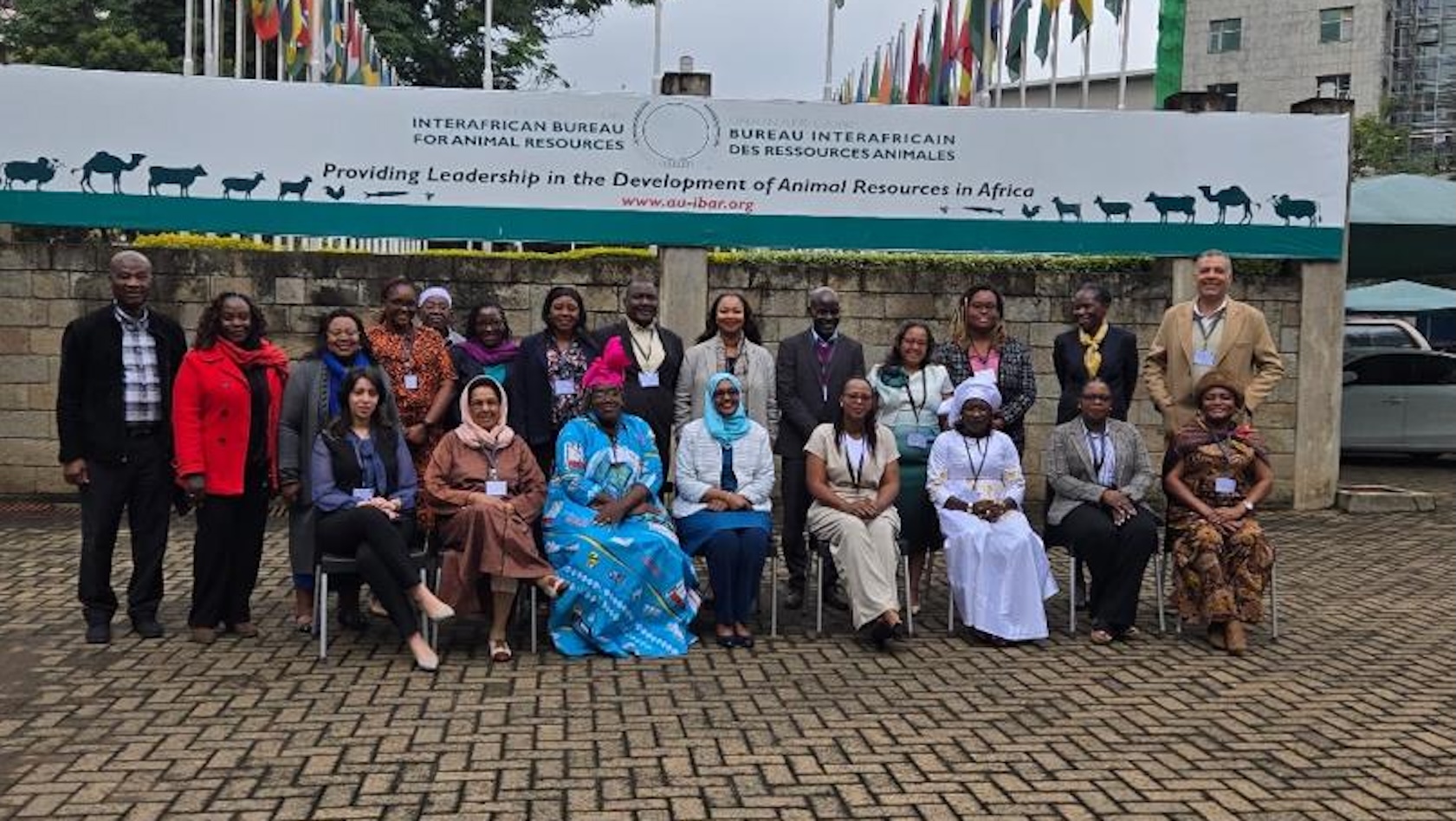AWFISHNET’S leadership handover sets ambitious targets for women’s empowerment in Africa’s small-scale fisheries

Photo showing peers and facilitators from AWFISHNET and AU-IBAR during the leadership training
©AWFISHNET secretariat
Written by AWFISHNET Executive Bureau
From 19 to 21 August, the African Women Fish Processors and Traders Network (AWFISHNET) took an important step for supporting a new generation of women leaders who aim to drive transformational change in Africa’s small-scale fisheries.
Thanks to the support of the Food and Agriculture Organization of the United Nations (FAO), and in collaboration with the African Union Interafrican Bureau for Animal Resources (AU-IBAR), a leadership and organizational capacity training was held in Nairobi, Kenya, to support the newly elected Executive Bureau of AWFISHNET in a critical handover process, bridging knowledge and responsibilities between older Executive Bureau Members and the incoming Executive Bureau.
The training was supported within the framework of implementation of activities funded under the Sida-funded project “Enhancing equitable climate-resilient and sustainable SSF through SSF Guidelines implementation” and the FVC-funded project “Implementing the Small-Scale Fisheries Guidelines for gender-equitable and climate-resilient food systems and livelihoods – Phase 2”.
The workshop brought together twelve women leaders from twelve African countries, engaging in a peer-to-peer learning exchange and capacity development focusing on essential skills in financial management, governance, and strategic action planning.
“You are encouraged to actively engage, learn from each other, and use the training to enhance AWFISHNET leadership and organizational capacity to advance its objectives” said Dr. Huyam Salim, the AU-IBAR Director.
This initiative falls within the scope of the implementation of the Voluntary Guidelines for Securing Sustainable Small-Scale Fisheries (SSF Guidelines), which emphasize the critical role of womenin small-scale fisheries (SSF) and the need for gender-responsive governance to achieve equitable value chains.
In this regard, strengthening women’s organizations such as AWFISHNET is essential for establishing sustainable and equitable small-scale fisheries. Such trainings support the commitment in creating an enabling environment at continental level where women can lead decision-making processes and be catalysts for change towards re-designed, and more equitable, power dynamics in SSF value chains, as well as sustainable development, food security, and poverty eradication, therefore directly contributing to the goals of the SSF Guidelines and the 2030 Agenda for Sustainable Development.
From the perspective of the leadership turnover process, the structured handover from outgoing to incoming leaders of AWFISHNET has marked a considerable achievement, ensuring continuity and transparency for the network, which represents over 70% of Africa's fish processors and traders. The training yielded impressive results as participants showed significant knowledge improvement, and 90% rated the training as “very useful”.
“The mentorship and practical skills we have gained are invaluable,” said Lovin Kobusingye, the newly elected President of AWFISHNET from Uganda. “FAO’s support has given us the confidence and tools to lead effectively and advocate for the needs of women at the grassroots level.”
The participants finalized an ambitious Action Plan for 2025–2026, prioritizing the expansion of national chapters, improving market access, and advocating for gender-inclusive policies across the continent. Diaba Diop, Vice President from Senegal, highlighted the collective spirit: “This training, made possible by our partners, ensured our strategic priorities are aligned and reflect the real challenges women face in the fisheries value chain. It shows the power of our collective action.”
AWFISHNET, established in 2017, continues to serve as a vital platform for advocacy, capacity building, and networking for women across Africa’s fisheries value chain. This training underscores its commitment to transparent governance and the power of collective action.
“This was more than a training—it was a unification of purpose,” said Betty Mondon, Vice Secretary from Seychelles. “Together, we are stronger, and together, we will transform small-scale fisheries in Africa.”
As AWFISHNET looks ahead, its leaders are poised to scale impact, foster resilience, and ensure that women are not only participants but decision-makers in the future of Africa’s blue economy.
For more information, please contact:
AWFISHNET Secretariat
Email: [email protected] | Website: www.awfishnet.org
About AWFISHNET:
The African Women Fish Processors and Traders Network (AWFISHNET) is a continental network dedicated to empowering women in the fisheries sector through advocacy, capacity building, and inclusive policy engagement. Currently active in 44 African countries, AWFISHNET works to enhance food security, sustainable livelihoods, and gender equality across Africa.
